| NFE Stories |
 |
 |
 |
|
Although each person has his or her own unique story to tell, we have highlighted life stories of some of the people related to RIDS-Nepal NFE program. Please click on the pictures below to find out the stories behind each individual.
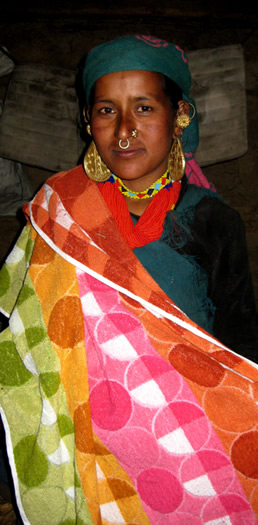 BhoteniDespite being an elderly woman (she is older than 35), Bhoteni attends a women literacy class in Kholsi village. She is very eager to learn and after 3 years of hard persistent work, she can now read and write. Last year she received an award for being the best student in her class. She is happy and proud and will continue to attend the classes to improve her reading and writing skills. Boteni gives a good example to the other illiterate women in her village: It´s never too late to learn something new. Close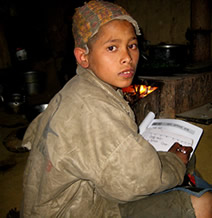 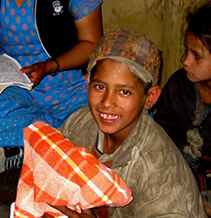 PattiPatti has been attending the women literacy class in Tulin village for 3 years now. He is the only male participant but he doesn't mind. On the contrary, he seems to be happy for this opportunity to learn how to read and write. Life has not been fair with him, he was born deaf. His class teacher uses sign language to teach him and it´s an ongoing challenge for both the teacher and the student to understand each other. But somehow Patti does understand. He can now write and he understands the silent message of the letters. He can read even though not a single word would come out of his mouth. Close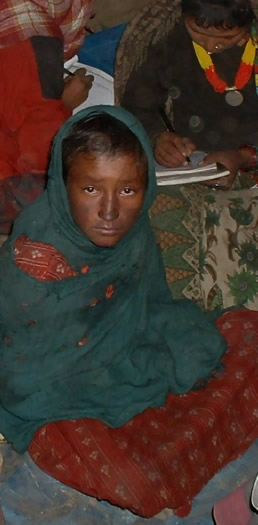 SuntalaA very skinny girl with black patches on her face, with thin hair wearing shabby worn out clothes came to us the first day we started classes in Chauganphaya village which was in January '09. Her name was Suntala. Since there was no space in the crowded classroom so she just sat in the middle of the circle. Everybody was busy writing their first letters except for Suntala. She did nothing and kept silent. Nobody cared and it seemed like she was used to that kind of response. Finally someone realised that she didn't have a pen and so gave her one. She was finally happy not only to get the opportunity to read and write but to be accepted by the people around her. Next time when we visited Chauganphaya classroom, she was not there anymore. We found out that she died. Poor Suntala could not finish the textbook that she just received. She left us before we could welcome her in our midst. Close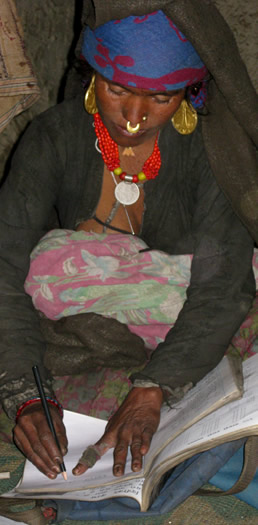 RelaRela is a Dalit woman. Being a female, Dalit (lower caste) and Humli are three plausible reasons to be excluded from the privilege of going to school. But 4 years ago things changed. Rela, a Dalit woman from Humla now goes to school every evening, together with her Dalit classmates. She can now read and write wonderfully well. In a self-written song, which is also included in our Non Formal Education textbook, she expresses her hardships by writing: "Due to some divine predestination we were excluded from education. But we still had a great desire to learn how to read and write. This desire was fulfilled when women classes started in our village. Since then we take study as our religion and follow it by learning”. Close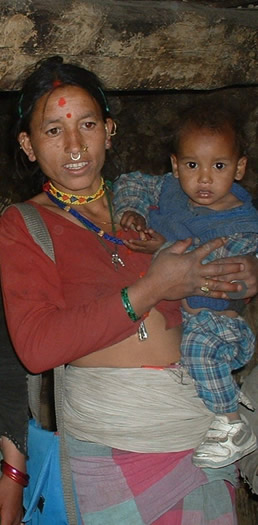 IsaraIsara is from Tulin. She is a woman who knows what she wants, and she wanted to learn- that´s why she came to our literacy class. She was very motivated and she motivated her classmates not to give up. But life turned more and more difficult for her since she was the second wife of her husband. Because of permanent conflicts and fights in the family Isara´s husband decided that she should move to Simikot to run a small shop in the bazaar. Isara had to stop classes unhappy that she could not achieve her goal to learn how to read and write. Close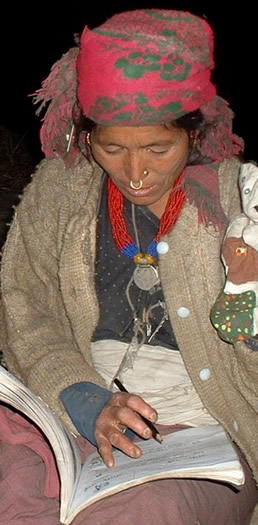 LoannaLoanna is a wonderful rarity in Humla. She is in her 40s, she is unmarried and since a few months can read and write. Being unmarried is considered shameful in Humla society. When Loanna was still a young girl, her parents died. She had to take the load of being a mother to her small brother on her fragile shoulders. Because of the constant hardships and challenges in her life, she had no time to get married. By the time her brother was old enough to take care of himself, she was in her 20s- too old to get married in Humla. Twenty years later a women class started in Tulin village. Loanna did not miss her chance this time and joined our classes although she was an “old lady” by then. Whenever time permits, she comes to the evening classes. Though light is dim and her eyesight weak- Loanna is very happy and proud that she can read and write. Close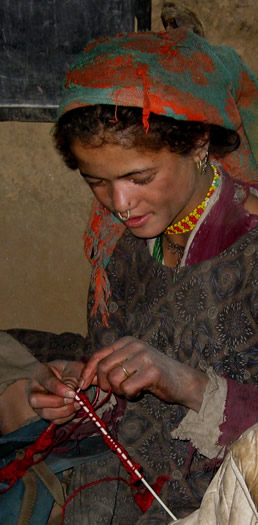 BelmatiBelmati is from Kholsi. Life was good when she was small. She even went to school. Then her mother died. Her family decided that Belmati could not go to school anymore since someone needed to do mothers work: bringing water, cooking, washing, fieldwork. No time was left for “unnecessary business” like studying. But there was still the chance of attending evening classes which she wisely did. She can now read and write and she is eager to learn more. Close Raj BahadurRaj Bahadur attended children literacy class in Dhadaphaya for 2 years. He was remarkably smart and after a short while could read and write easily. What a pity that he was not sent to school for further education. According to his parents, he had more important things to do which we later found out to be cattle grazing. So Raj Bahadur continued going to evening classes hoping his parents would change their mind someday. And indeed that day came when even his parents realized how smart their son was. He was sent to school and the teachers decided he could easily be enrolled in grade 3. Now he is a proud student of class 4 in Dhadhaphaya school. Close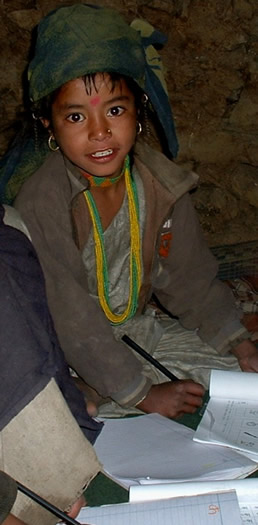 RamitaRamita is from Dhadhaphaya village. She is one of 5 daughters. Two sisters are lucky to get the chance to study in school but not Ramita (According to her parents "who wants to waste all the money educating daughters who will end up as wives and daughter-in-laws in other peoples' houses?"). Instead, Ramita goes to a literacy class in her village. She wants to learn despite what people think. She made very good progress and it is a joy to see that she is able to read and write now. Having experienced all that, she hopefully won't hesitate to send her own daughters to school someday. Close |